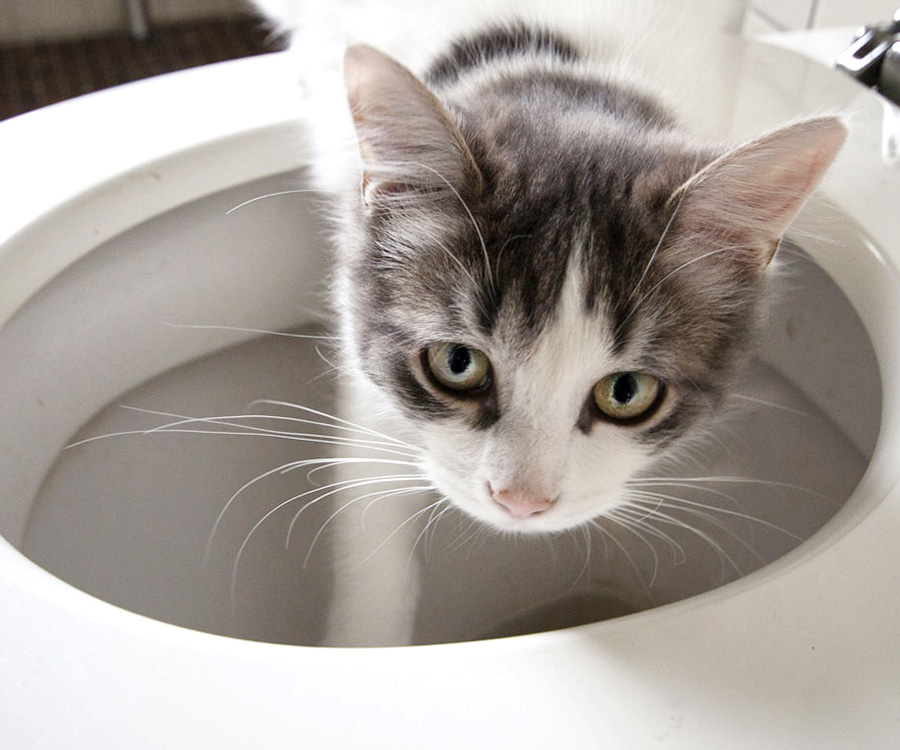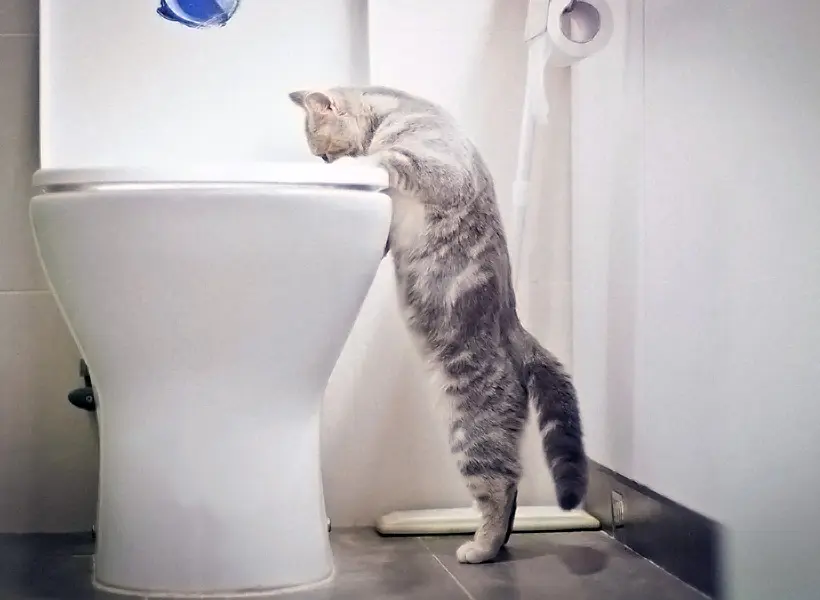The Dangers of Flushing Cat Poop Down Your Toilet - Tips for Better Handling
The Dangers of Flushing Cat Poop Down Your Toilet - Tips for Better Handling
Blog Article
Just how do you feel with regards to Don’t flush cat feces down the toilet?

Intro
As cat owners, it's vital to bear in mind how we dispose of our feline pals' waste. While it may seem practical to flush feline poop down the bathroom, this method can have damaging repercussions for both the atmosphere and human health and wellness.
Alternatives to Flushing
Luckily, there are much safer and more responsible means to throw away feline poop. Think about the following choices:
1. Scoop and Dispose in Trash
The most usual approach of disposing of feline poop is to scoop it into an eco-friendly bag and throw it in the garbage. Make sure to make use of a devoted clutter scoop and take care of the waste quickly.
2. Use Biodegradable Litter
Opt for biodegradable feline clutter made from products such as corn or wheat. These trashes are environmentally friendly and can be safely dealt with in the trash.
3. Bury in the Yard
If you have a yard, consider hiding pet cat waste in an assigned area away from veggie yards and water sources. Be sure to dig deep adequate to stop contamination of groundwater.
4. Set Up a Pet Waste Disposal System
Invest in a pet garbage disposal system particularly designed for pet cat waste. These systems utilize enzymes to break down the waste, reducing smell and environmental effect.
Health Risks
Along with environmental worries, flushing feline waste can also position wellness dangers to human beings. Cat feces might have Toxoplasma gondii, a bloodsucker that can cause toxoplasmosis-- a potentially serious ailment, particularly for expecting females and people with weakened immune systems.
Environmental Impact
Flushing feline poop introduces dangerous pathogens and bloodsuckers into the water system, posturing a considerable risk to marine ecosystems. These contaminants can negatively influence marine life and compromise water high quality.
Conclusion
Responsible pet ownership expands beyond giving food and shelter-- it also involves appropriate waste monitoring. By avoiding purging pet cat poop down the toilet and choosing alternate disposal techniques, we can minimize our environmental footprint and shield human health and wellness.
Why You Should Never Flush Cat Poop Down the Toilet
A rose by any other name might smell as sweet, but not all poop is created equal. Toilets, and our sewage systems, are designed for human excrement, not animal waste. It might seem like it couldn’t hurt to toss cat feces into the loo, but it’s not a good idea to flush cat poop in the toilet.
First and foremost, assuming your cat uses a litter box, any waste is going to have litter on it. And even the smallest amount of litter can wreak havoc on plumbing.
Over time, small amounts build up, filling up your septic system. Most litter sold today is clumping; it is made from a type of clay that hardens when it gets wet. Ever tried to scrape old clumps from the bottom of a litter box? You know just how cement-hard it can get!
Now imagine just a small clump of that stuck in your pipes. A simple de-clogger like Drano isn’t going to cut it. And that means it’s going to cost you big time to fix it.
Parasitic Contamination
Believe it or not, your healthy kitty may be harboring a nasty parasite. Only cats excrete Toxoplasma in their feces. Yet it rarely causes serious health issues in the cats that are infected. Most people will be fine too if infected. Only pregnant women and people with compromised immune systems are at risk. (If you’ve ever heard how women who are expecting are excused from litter cleaning duty, Toxoplasma is why.)
But other animals may have a problem if infected with the parasite. And human water treatment systems aren’t designed to handle it. As a result, the systems don’t remove the parasite before discharging wastewater into local waterways. Fish, shellfish, and other marine life — otters in particular — are susceptible to toxoplasma. If exposed, most will end up with brain damage and many will die.
Depending on the species of fish, they may end up on someone’s fish hook and, ultimately on someone’s dinner plate. If that someone has a chronic illness, they’re at risk.
Skip the Toilet Training
We know there are folks out there who like to toilet train their cats. And we give them props, it takes a lot of work. But thanks to the toxoplasma, it’s not a good idea.

I stumbled upon that blog posting about How to Dispose of Cat Poop and Litter Without Plastic Bags when doing a search on the web. Sharing is nice. You won't know, you may very well be doing someone a favor. Kudos for your time. Visit us again soon.
Recurring Service Plans Report this page